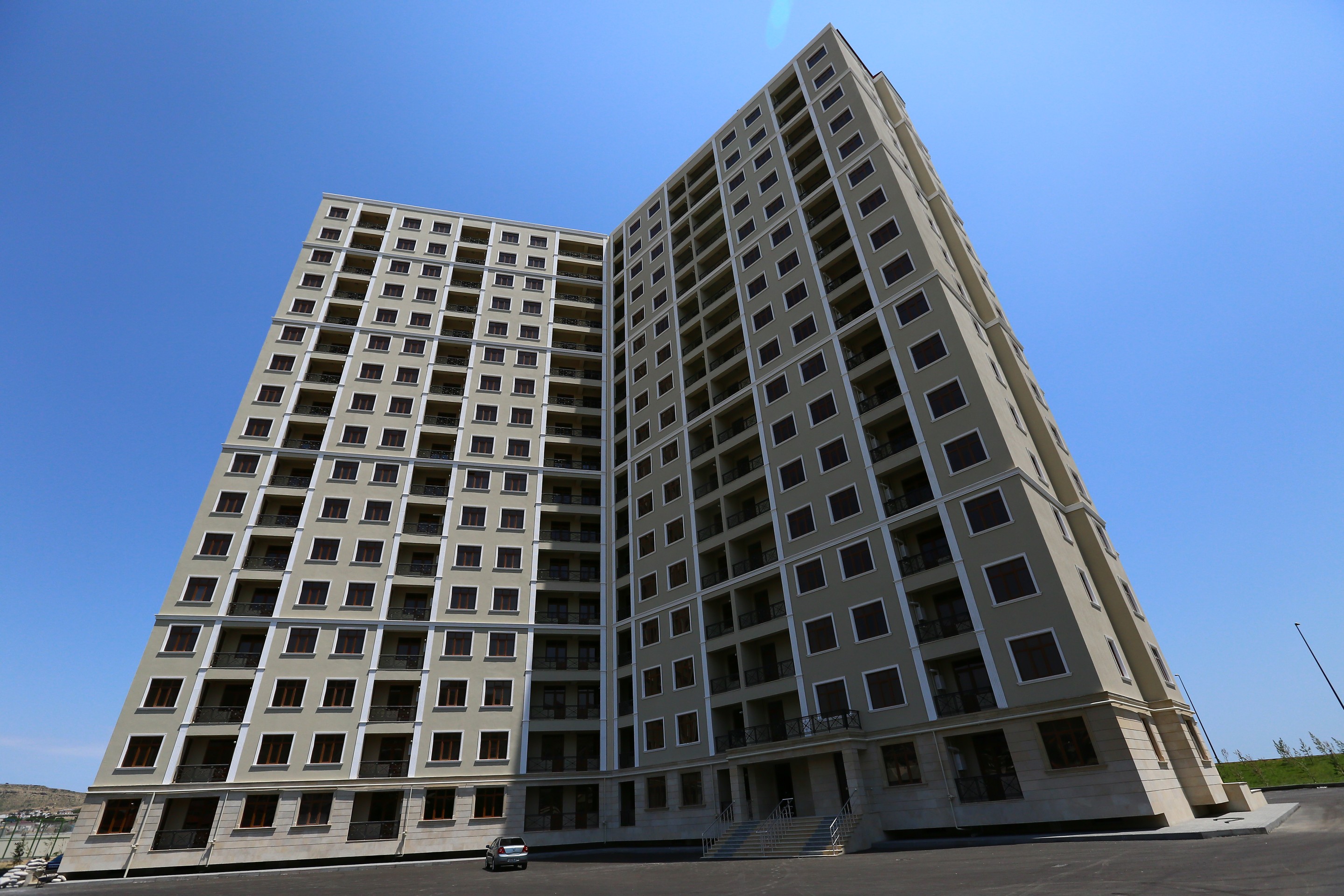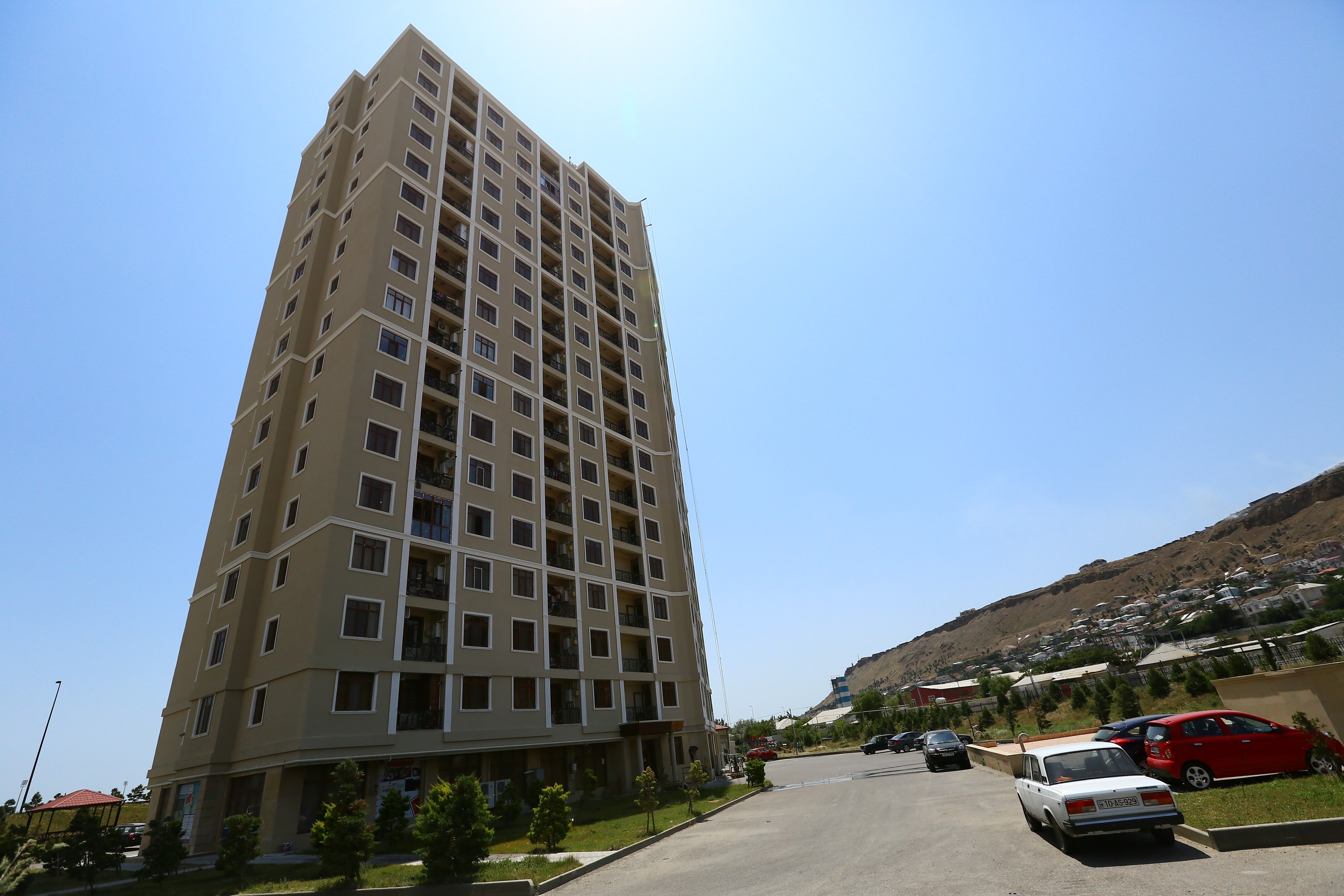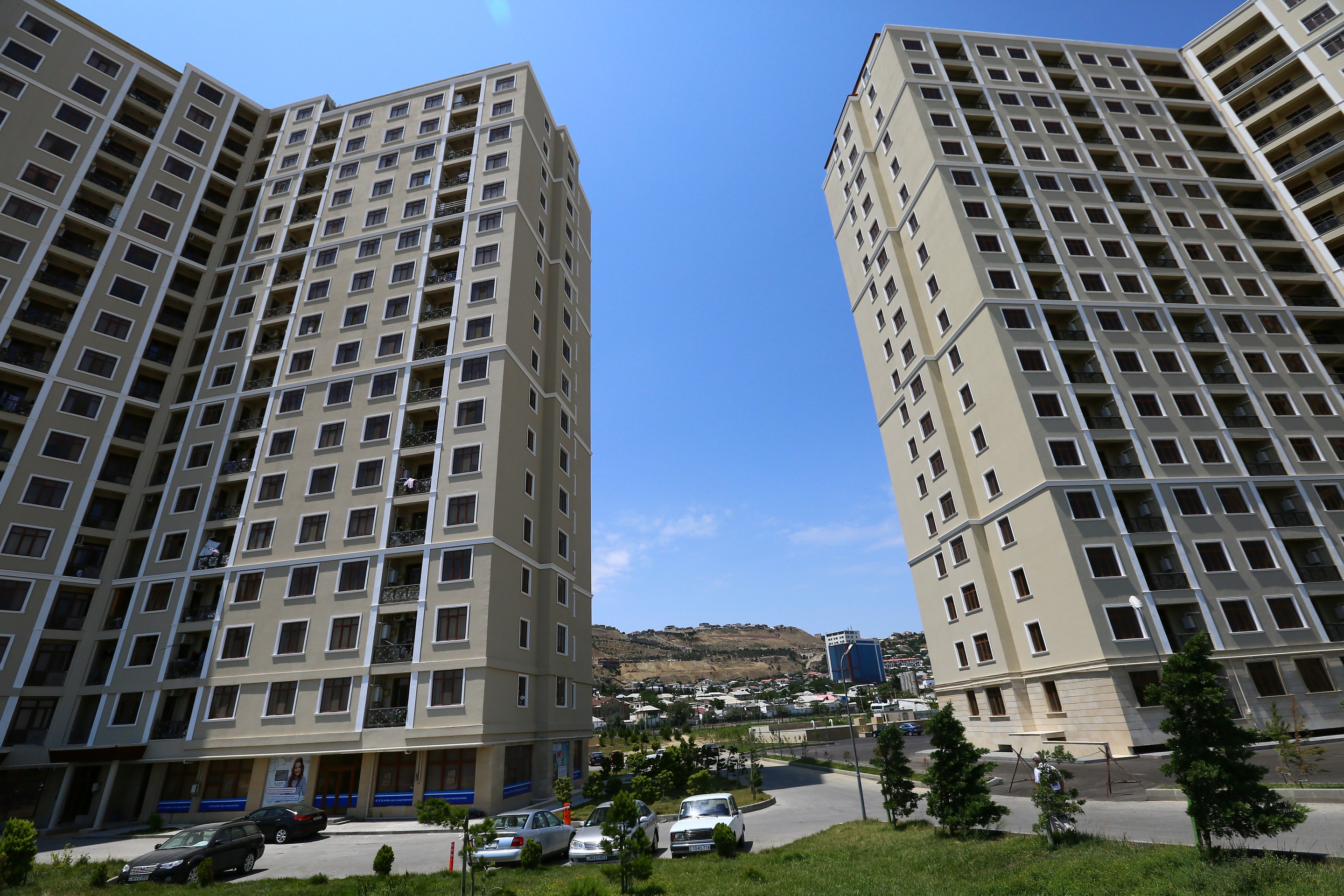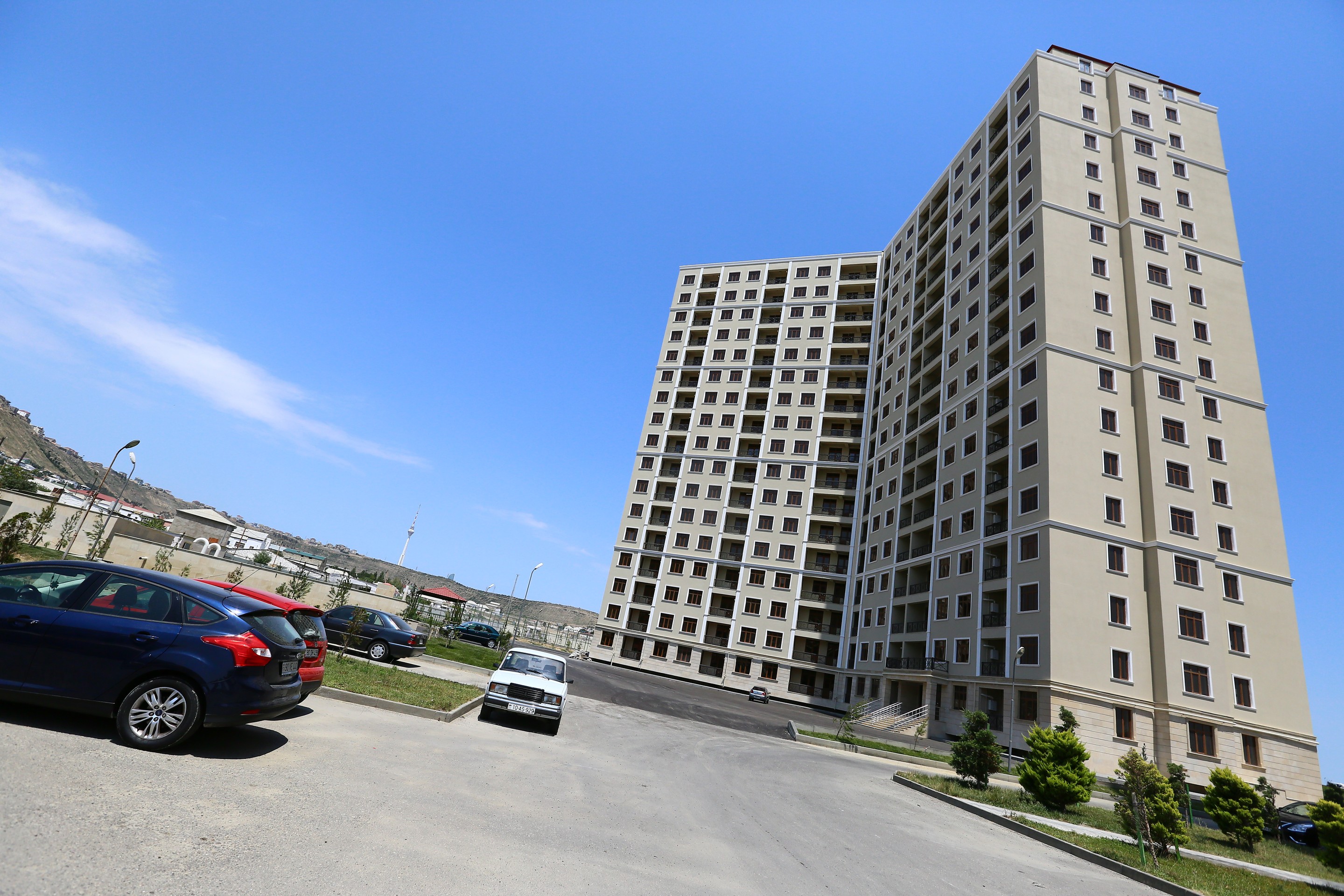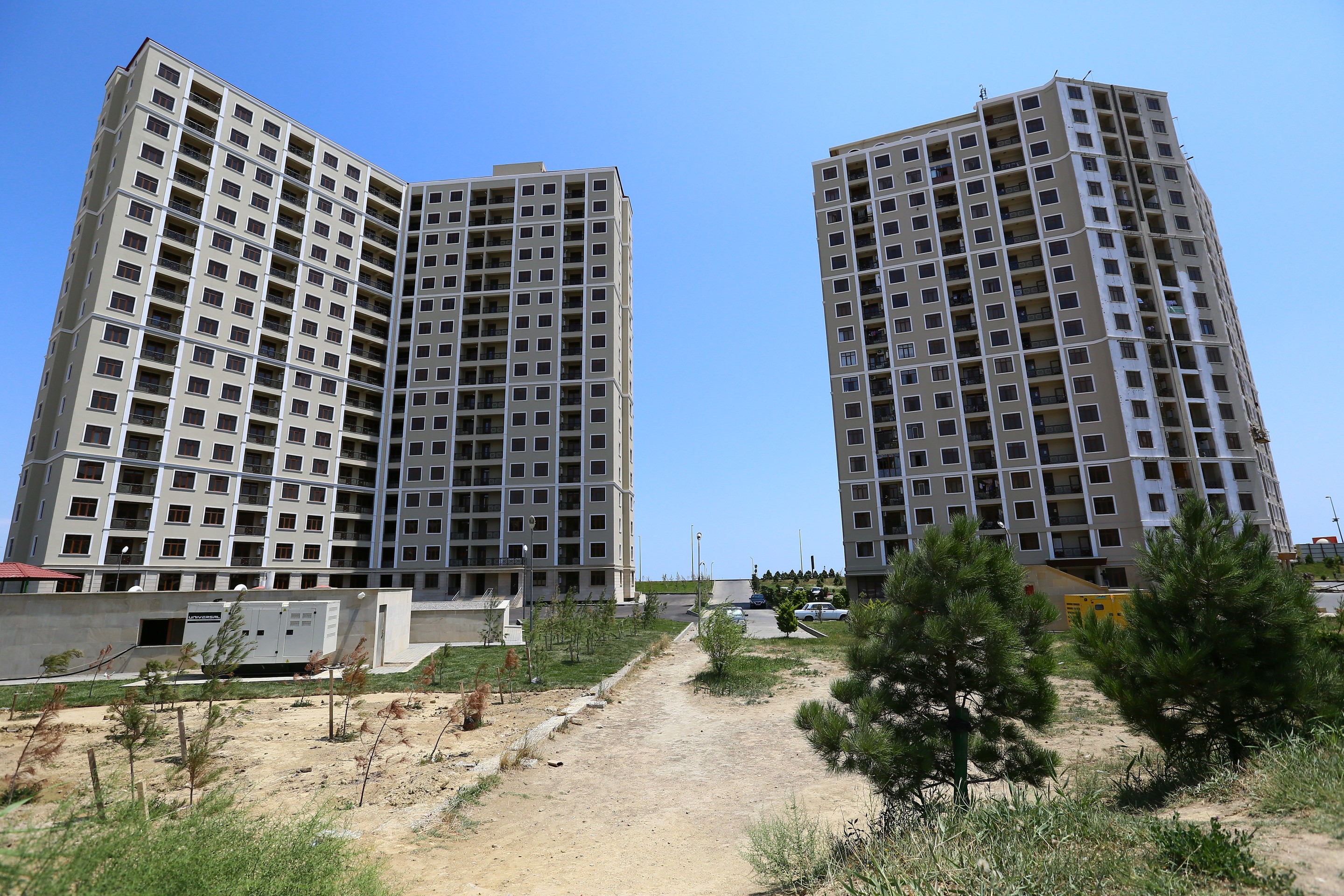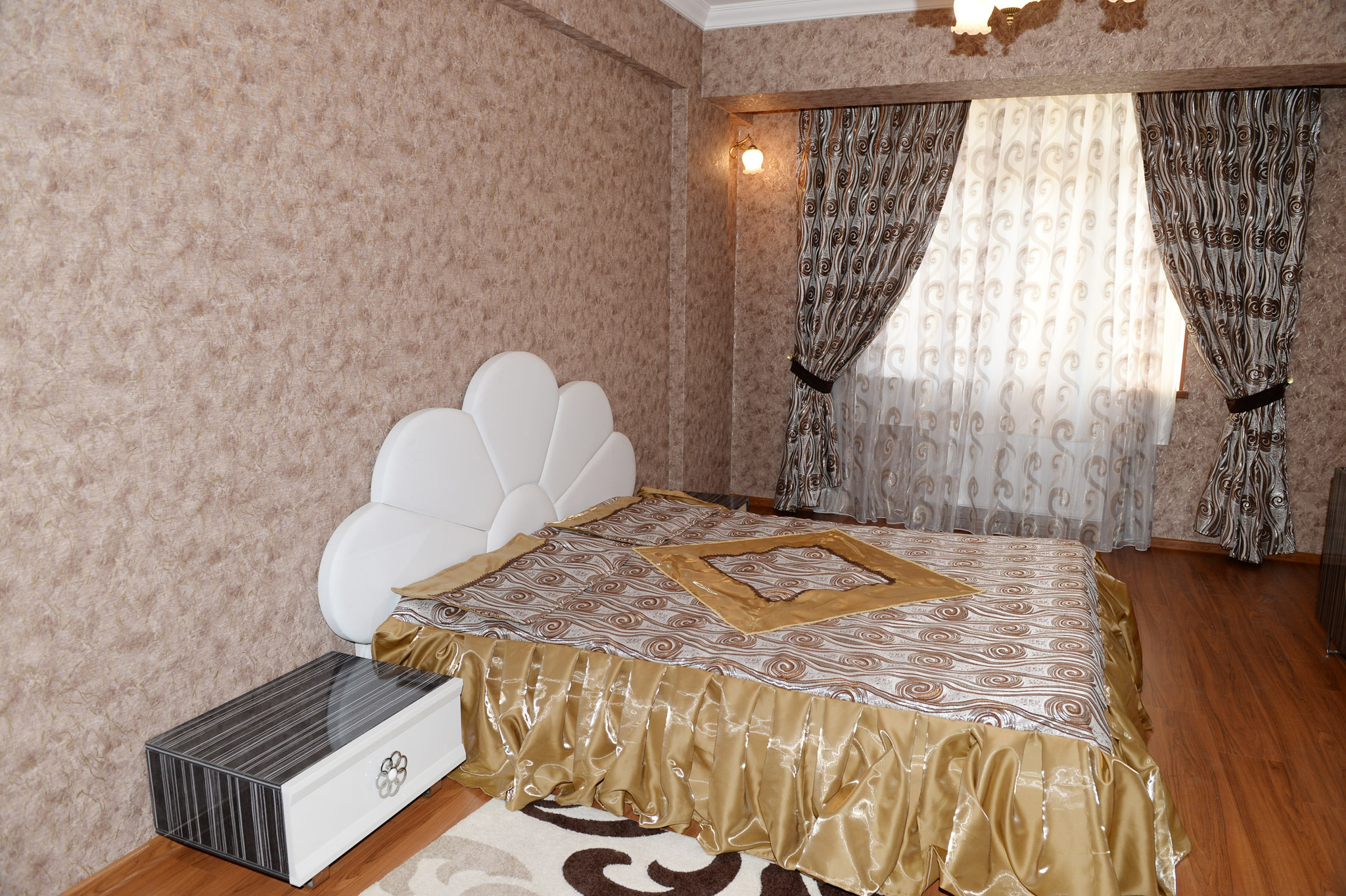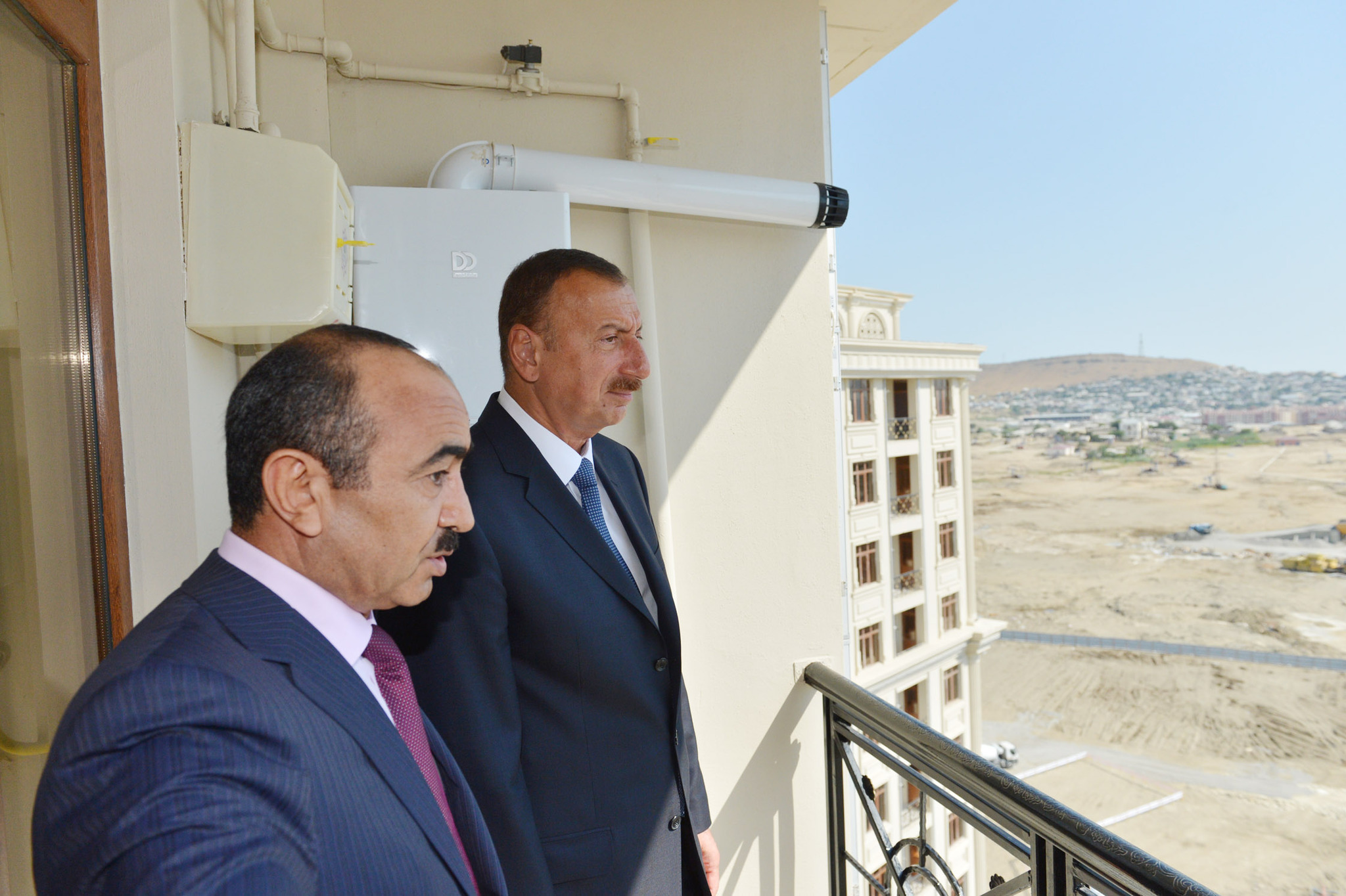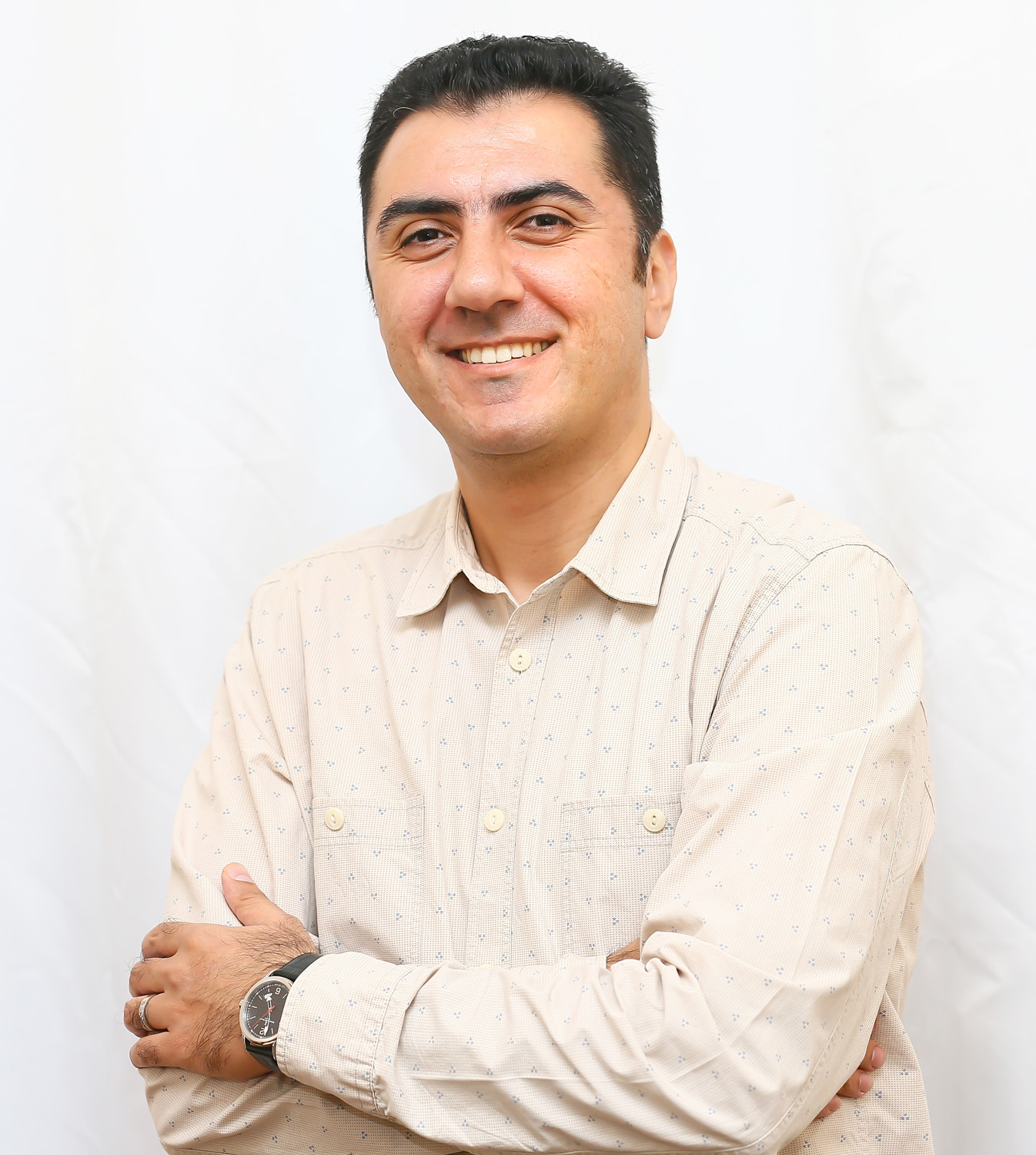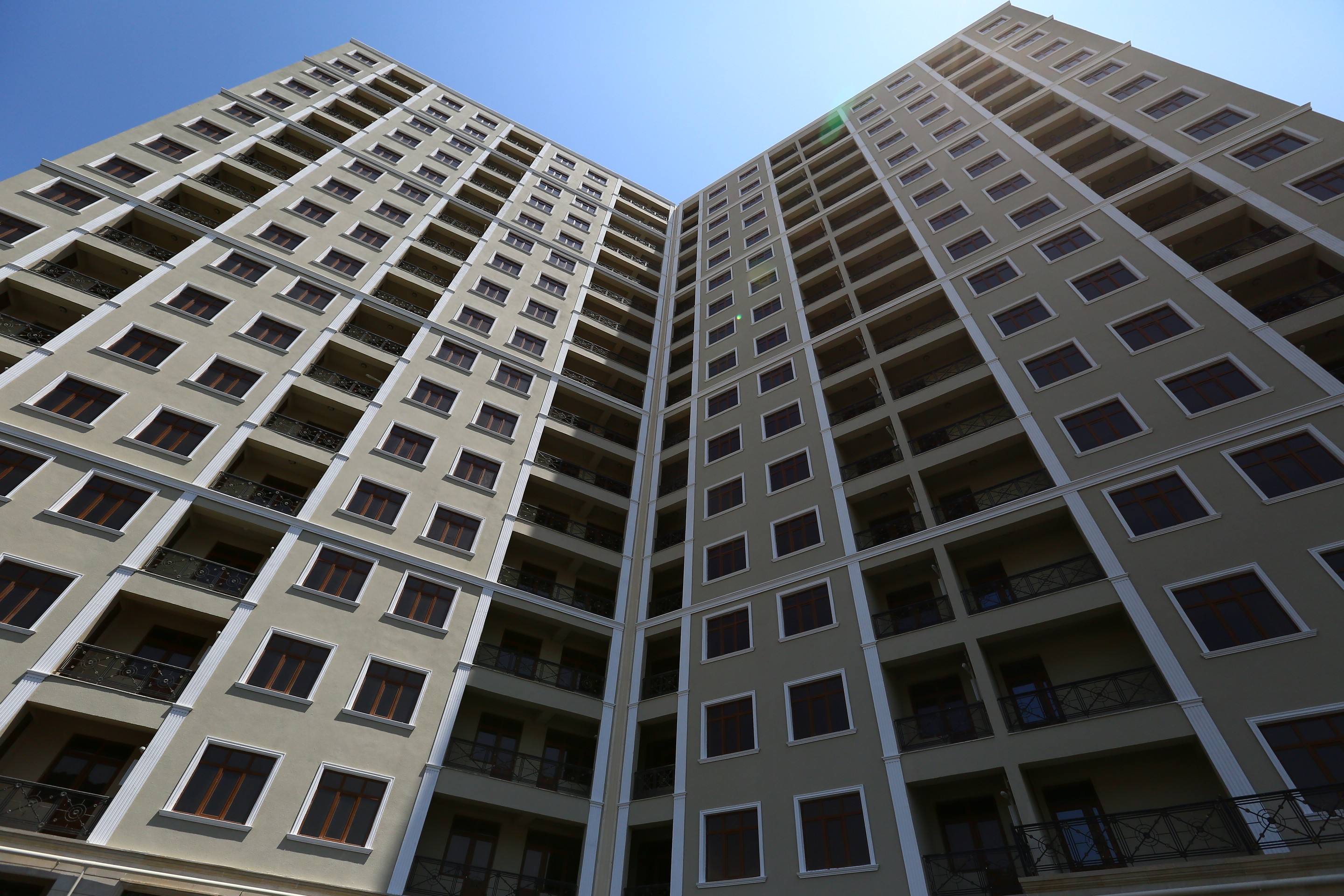
 An initiative from Azerbaijan’s government to grant free flats to journalists has sparked debate in local media circles. Journalists in favour hail it as a form of wealth redistribution, while others see it as yet another attempt to smother media freedom in the country.
An initiative from Azerbaijan’s government to grant free flats to journalists has sparked debate in local media circles. Journalists in favour hail it as a form of wealth redistribution, while others see it as yet another attempt to smother media freedom in the country.
[Read in Azerbaijani — Azərbaycan dilində oxuyun]
On 22 July 2017 — 142 years after the publication of the first newspaper in Azerbaijan — 255 journalists will receive free flats from the government. A large 17-floor building has been constructed on President Ilham Aliyev’s decree to accommodate these.
Bibiheybat District where the building is located
Four years ago, 156 journalists were awarded with flats, and on top of the current giveaway, a third building is on the way for journalists.
Media agencies will themselves nominate employees to be given flats. According to the State Fund for Support to Development of Mass Media, media agencies can propose candidates who have worked for them for at least the last three years and who have worked in the media for at least the last ten. Only employees who do not own property, and whose spouse and children do not own property, will be eligible.
According to Aflatun Amashov, member of parliament and head of the Azerbaijani Press Council, the Presidential Administration will decide whom to award with flats.
(Aziz Elkhanoglu/OC Media)
The Journalist Flat Cooperative Union
According to Mushfig Alasgarli, head of the Trade Union of Journalists and deputy head of the Press Council, the idea was first brought to the agenda by the media themselves at the beginning of 2000.
‘As a trade union of journalists, we publicised this idea in 2002. (…) In 2004–2005, the Journalist Flat Cooperative Union was established; they made a lot of effort to solve the flat problems of journalists’, Alasgarli told OC Media.
According to 2002 statistics from the Trade Union of Journalists, 85% of journalists in the country did not own their own flat.
‘Professional journalists leave the sector as they cannot buy their own flats and receive low incomes; they shift their occupation in order to be able to buy flats, which in turn impacts the quality of the media negatively’, said Alasgarli.
During the opening of the first building on 22 July 2013, Ilham Aliyev, President of Azerbaijan, hailed the initiative as the first of its kind in the world, and demonstrated ‘Azerbaijan’s leadership in this regard’. In total, ₼22 million ($13 million) was spent from the state budget on the construction of the building and landscaping of the adjacent area.
Opening of the first building on 22 July 2013 (president.az)
‘I am not the president’s spokesperson, I am a journalist’
Some journalists in Azerbaijan have spoken out about the scheme, both now and during a previous giveaway four years ago. Journalists have been divided into two groups: those who say it is normal to be given free flats, including the candidates themselves, and those who disagree with this idea.
While the former group claims that providing journalists with flats and increasing their well-being should be seen as positive attention towards the country’s media, the latter group disagrees. They claim that giving flats and other valuable gifts to journalists destroys the independence and freedom of the media, and leads to corrupted journalists.
Thirty-seven-year-old freelance journalist Aytan Farhadova is against the government giving flats to journalists. She does not believe that the goal is to help them.
‘It is done to silence the journalists. How can a journalist who received a flat from the state criticise their ineffective politics?’, Farhadova told OC Media.
Farhadova has been a journalist for the last 13 years. She has a young child and her husband passed away a few years ago. She lives with her parents. Although she admits that she needs her own flat, she notes that she does not have any wish to win free presidential flat.
‘I do not intend to either apply or ask the state for a flat. I am not the president’s spokesperson, I am a journalist. I need a country with the rule of law more than I need a flat. After all, why are flats given to journalists? What is the difference between a journalist and other professions?’, Farhadova said.
Turan Information Agency have refused to participate in the scheme. Mehman Aliyev, director of the agency, said that although he and his staff were approached to apply in 2013, they turned down the offer.
‘I am glad that this year they have not approached us. They know well that we do not accept gifts from the government. We know that their goal is to silence the media and to control it’, Aliyev told OC Media.
Alasgar Mammadli, ex-Deputy Chief of Party for the USAID Azerbaijan New Media Project, said that when journalists receive flats from the government, their chances to speak the truth decreases to a minimum. He said that it can be used as a way to take power over journalists.
‘Journalists are not the only ones who need social support. Feelings of self-censorship from journalists who are awarded free flats will grow stronger and they will have to overlook everything’, Mammadli told OC Media.
According to him, if the government really wants to support the media, it should do so by creating a free environment.
‘Provision of flats to journalists is natural’
Elchin Bayramli, 42, editor of Azadinform Information Agency, sees the provision of flats to journalists as natural, and admits that he has even applied himself.
‘Per our constitution, Azerbaijan is a social state and the state gives aid from gross income to groups with low incomes. Why not give [flats] to journalists with low social status?’, Bayramli told OC Media.
Bayramli has worked in the media for 20 years. He said that he has been renting a home for many years. His wife is also a journalist with 16 years of experience.
‘We have been married for 13 years and we have never had the opportunity to buy even a one room shack, nevermind a flat. Now we ask our state for the flat that we have never had’, Bayramli said.
According to Bayramli, it is absurd to claim that journalists will be dependent on the government once they receive a free flat.
‘Personally, I have a lot of criticism in the materials I have written. My position and professional principles are not going to change, even if I win a flat’, he continued.
Bahruz Guliyev, head of the pro-government Ses newspaper and Ses Information Agency disagrees that journalists awarded flats lose their independence, ‘rather this makes them freer’, he told OC Media.
‘Journalists work many years and still cannot buy a house, the state helps to relieve their burden. Then a journalist provided with flat would not ponder on domestic life, rather could focus on his job’, Guliyev continues.
He adds that journalists’ services to the media, not their political position or views, are considered while awarding flats.
Several employees of Ses received flats from the government in 2013. This time 12 journalists from both the newspaper and the website applied for free housing.
Mushfig Alasgarli, the head of Trade Union of Journalists said that those who claim that journalists lose their independence have no idea of what is going in the world.
‘We can list USA, Germany, Austria, Sweden and many other states that spend from the state budget for the development of the media and resolving journalists’ problems. The structure might be different, but the content is the same’, Alasgarli said, adding that there the criteria for eligibility leave no mechanism that would control or silence journalists.
International scepticism
The government plan’s have raised eyebrows abroad. Azerbaijan has been criticised for its dismal record on media freedom and repression against local journalists by a number of international watchdogs, including Freedom House, Reporters Without Borders, and the Institute for Reporters’ Freedom and Safety.
‘Journalists who are granted apartments for free by the government or the president will automatically fall under the government’s control. They cannot be considered any longer independent journalists’, Ricardo Gutiérrez, General Secretary of the European Federation of Journalists, told OC Media.
Gutiérrez says that state-funded free housing to journalists was completely the wrong solution and stressed that this was in total contradiction to recommendations signed off on by Azerbaijan in April 2016.
According to Gutiérrez, ‘the one and only acceptable solution is to improve their working conditions and to guarantee their freedom to report in an independent way. By offering journalists free housing, Azerbaijan is doing the contrary: the government exposes journalists to undue pressures. That’s totally unacceptable’.




 18 July 2017
18 July 2017
